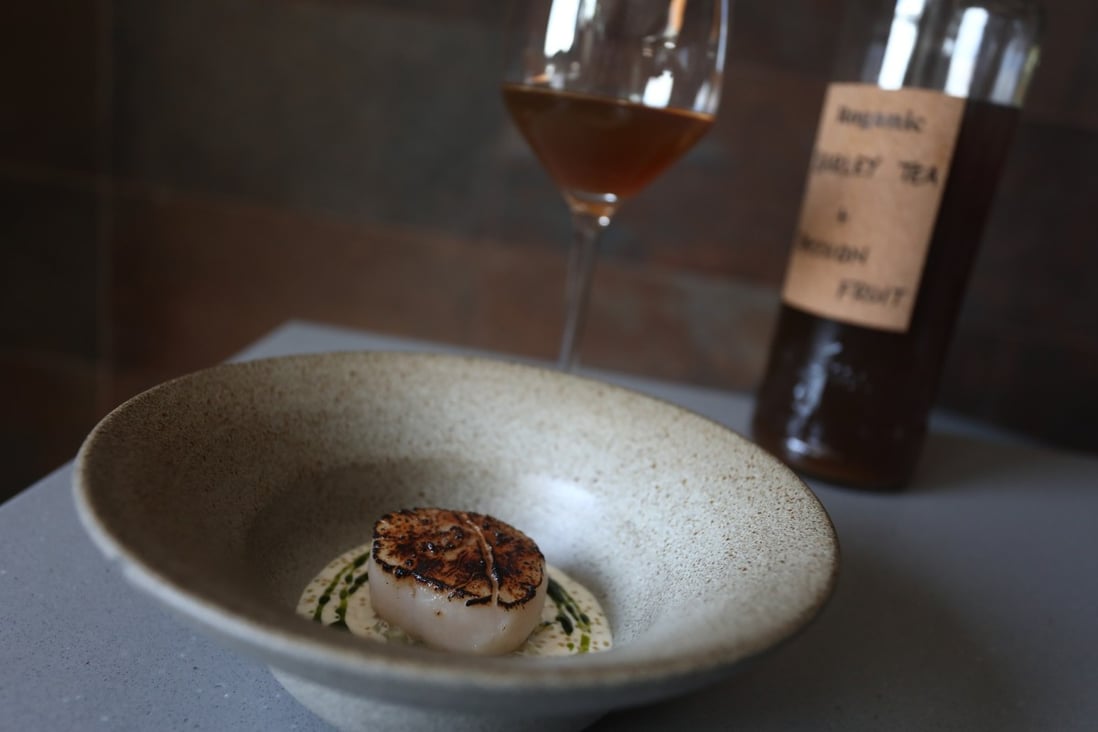
It used to be that food lovers who avoided alcohol for whatever reason only had the choice of drinking plain water or pairing dishes with sugary mocktails.
But forward-thinking restaurants, such as Popinjays at the Murray Hong Kong and Cultivate, in Central, Hong Kong are pairing their dishes with non-alcoholic drinks, selected with the same care that they would put into choosing a wine pairing.
One restaurant that opened recently is Glassbelly, which presents Chinese teas paired with food, not the other way around.
In Causeway Bay, Glassbelly has foodie-pleasing dishes such as sea urchin and crispy tofu with vegetarian XO sauce, and blue lobster with Chinese shrimp roe noodles and Spanish red shrimp sauce, but the focus is on the teas, including rougui tea (a mix of osmanthus and rose) and plum-scented pu’er tea.
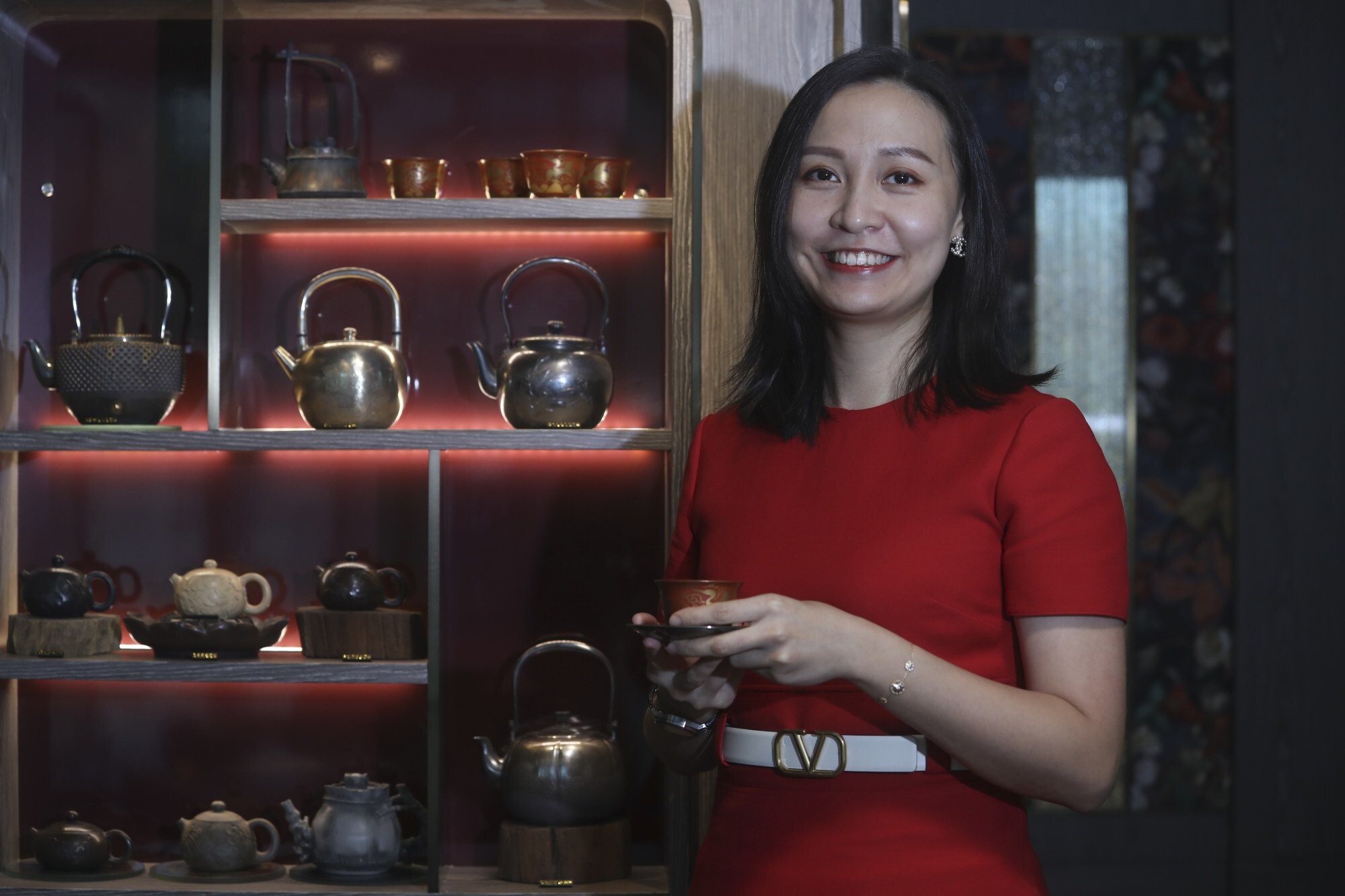
Owner Wing Yeung explains the name Glassbelly comes from Shennong, a mythological Chinese deity related to agriculture and herbal medicine.
“He advised on what one should and shouldn’t eat. He had a glass belly so that when he ate, he could observe how the food affected his body. One time he ate something that made his stomach black, but he then ate a leaf that washed his stomach, and it was a tea leaf,” she explains.
Why drinking non-alcoholic beer is a growing global trend
At Glassbelly, food flavours are enhanced when paired with tea, Yeung says, and shows what she means with a caviar pairing. Presented on dry ice for dramatic effect, there are three spoonfuls of different caviars to taste.
“Many people, when they eat caviar, can’t differentiate between them. They just think it’s salty or fishy, but when paired with tea it enhances the flavour. One is nutty, one is a strong umami, and then there’s one that’s creamy, like pei dan [century egg].”
Yeung says when a person drinks wines, the tongue is coated in tannins and becomes less sensitive to flavours, whereas with tea it’s the opposite – the palate is more sensitive. While tea also contains tannins, it keeps the palate refreshed, she says.
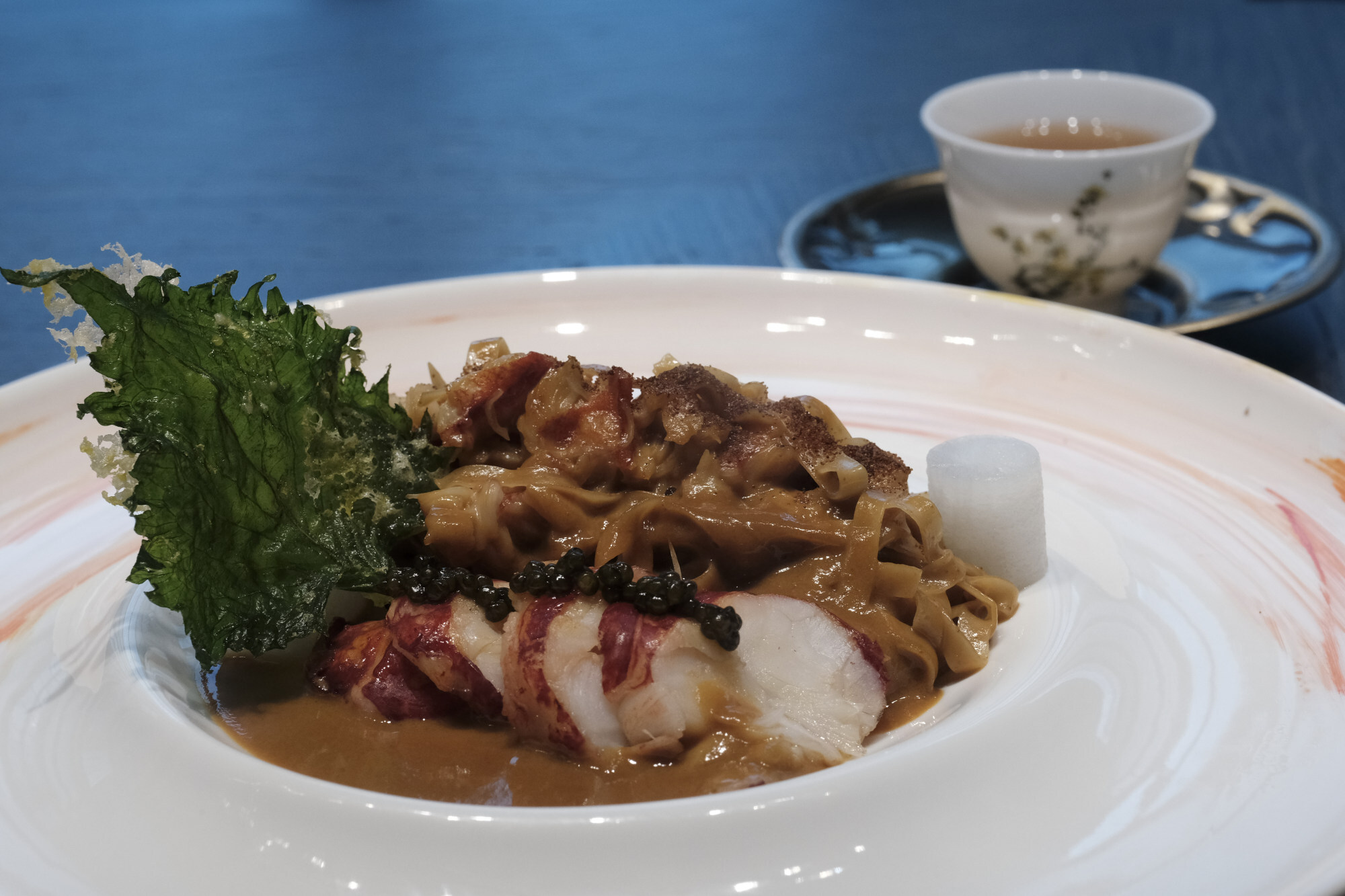
“Western cuisine uses a lot of cream, oil and olive oil so the palate is not as sensitive,” Yeung adds. “We cut down on the oil, and with hot tea you can clear away the oil. Cold tea keeps the flavour, then slowly it warms up to room temperature.”
The tea-drinking experience is enhanced by having the beverage served in Riedel wine glasses.
It’s surprising to learn that Yeung’s background is in whisky and wine, not tea. She worked previously at distiller Macallan, then at wine and spirits merchants Berry Bros. & Rudd. She learned how to taste their alcoholic beverages and pair them with food.
In 2016, when Burgundy expert and master of wine Jasper Morris visited Hong Kong, he asked Yeung where he could buy the best oolong tea in Hong Kong. She was completely stumped.
She began searching for the tea, which she had never tasted, and was intrigued, because oolong tea is from Fujian province, where her family is from.
“Tea doesn’t have the same standard as wine. So I bought all kinds of oolong tea from a few hundred yuan to hundreds of thousands of yuan, some claiming to be high-quality. With my wine experience, I began taking detailed tasting notes and tried over 2,000 kinds of tea from Wuyi Mountain [in Fujian province].”
The no-alcohol spirits that let you drink without gaining weight
She soon found out that expensive teas were not necessarily of a good quality, and that cheap ones could be decent. In the end the tea she found Morris was mid-range.
According to Yeung, Hongkongers know how to eat and drink, but she describes their tea knowledge as “supermarket level”. “I want people to know about tea,” she adds.
From her detailed tasting notes Yeung, with the help of tea experts, created a pie chart categorising the teas with flavour notes they can have, such as spicy, earthy, nutty, and floral. From there the chefs created dishes to match.
“You can have teas that are fragrant and sweet, that have flavours like mushroom, floral, even cinnamon,” she says.
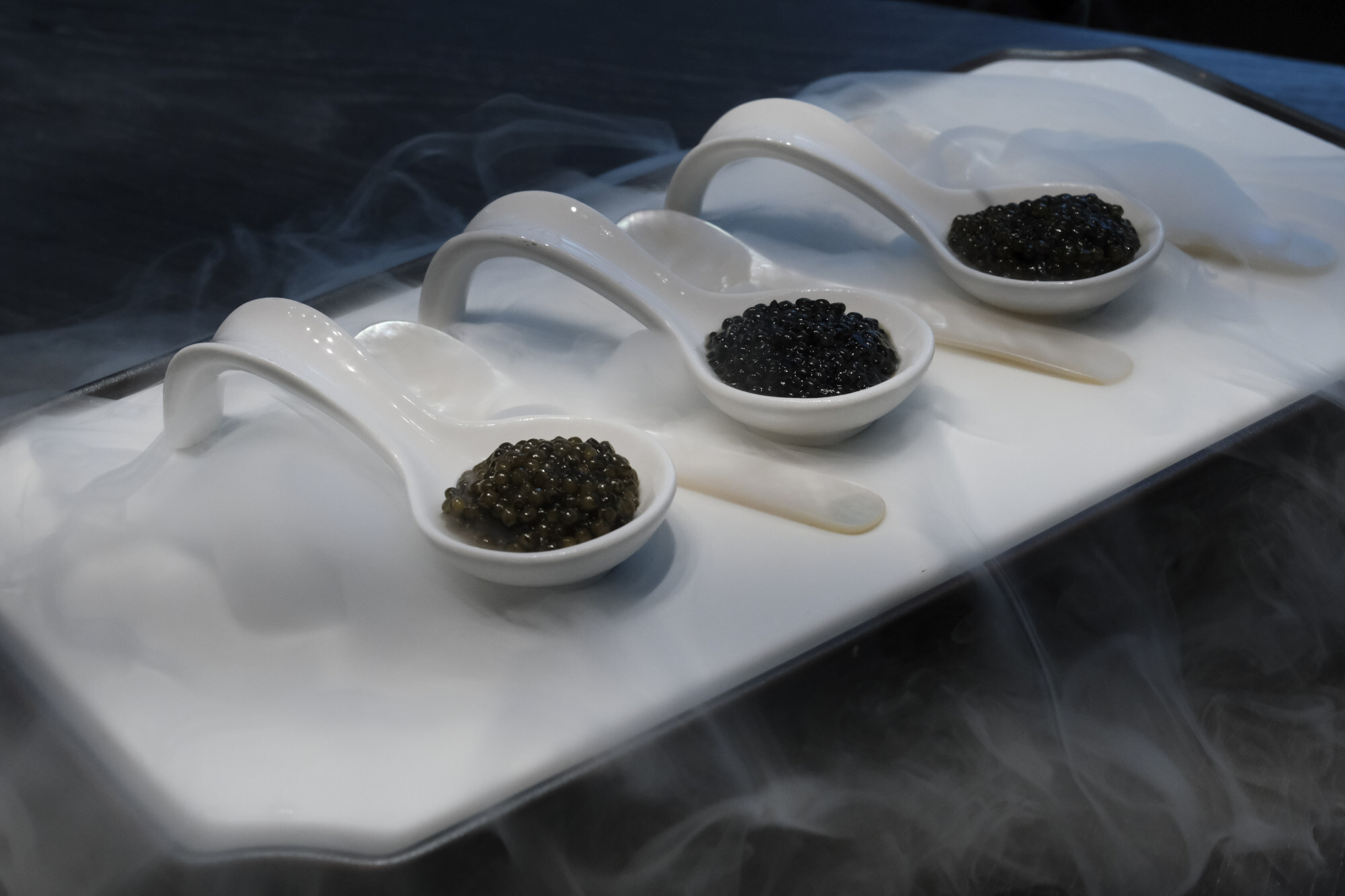
At Aulis, the smaller counter area inside Roganic restaurant, also in Causeway Bay, restaurant manager Laudy Gibba-Smith says that in the past few years in the West, it has becoming more popular for people not to drink for reasons of health.
She arrived in Hong Kong in 2019, and observes that people in the city don’t drink much alcohol. Non-alcoholic pairings are a way to have a memorable dining experience, she says.
“Fridays and especially Saturdays, people have been drinking and then [on Sundays] people want something to experience with the food, but they don’t want alcohol. If people are driving, teetotal, or if they’ve had a lot of alcohol during the week, I tell them we have wine pairing or a non-alcoholic [option].”
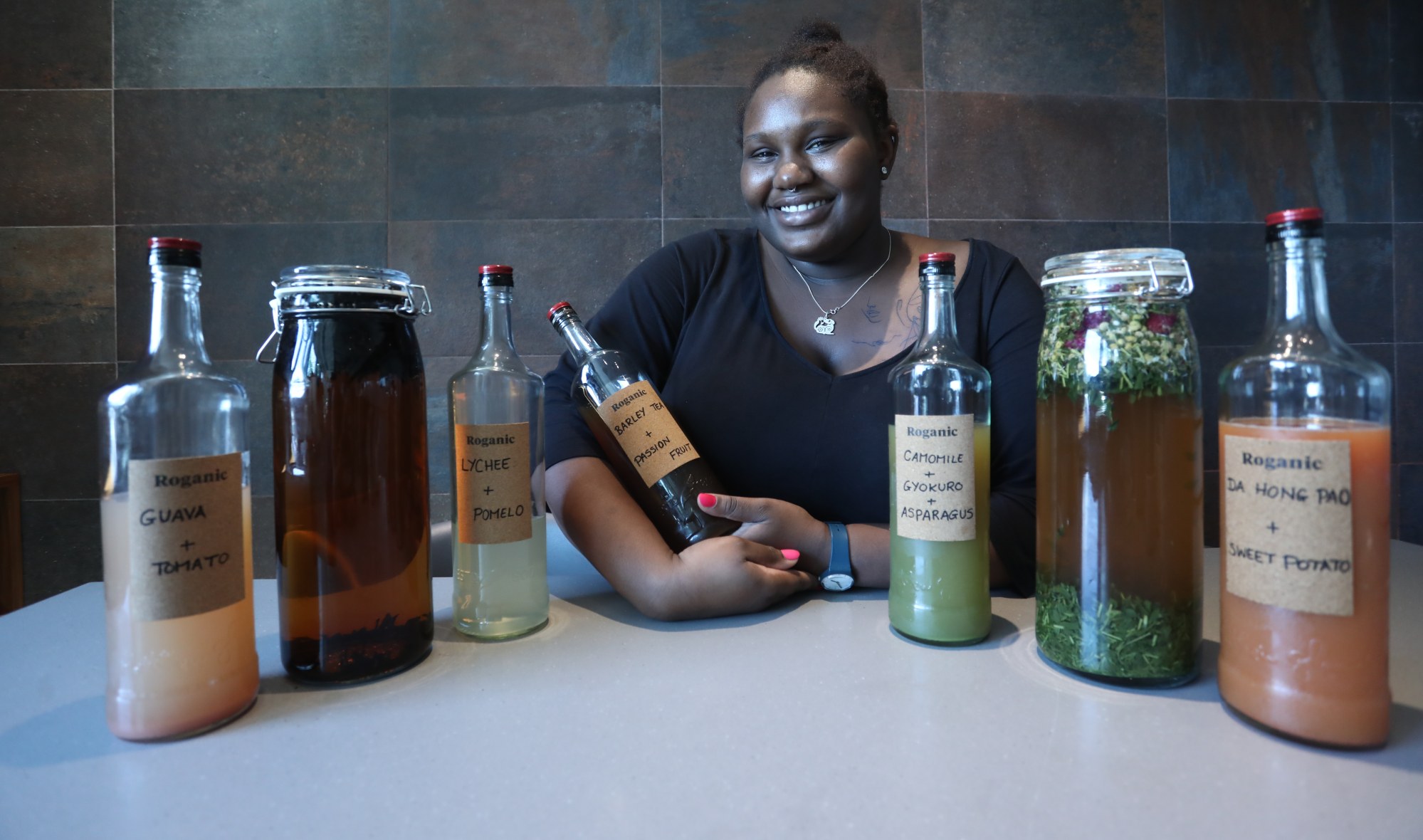
Aulis, started by British chef Simon Rogan, focuses on local produce and many of the vegetables and fruits are sourced from organic farms in the New Territories. Gibba-Smith follows Rogan’s “go local” ethos in creating the non-alcoholic drinks.
“I love matching food and wine together – it’s so interesting how a wine can change a dish for the better. I was a bit nervous about this because it was my first time making non-alcoholic drinks. It’s been trial and error, but no errors yet; fingers crossed it stays that way,” she says with a laugh.
She has come up with some interesting concoctions, including a refreshing sparkling peach and cucumber drink that goes well with a pickled peach tart.
Here’s why the ‘sober curious’ commit to drink-free periods
“I try to not replicate wine, but go for similar flavour profiles as the wines I chose for matching. Cucumber has water in it and it has a herbaceous finish – I didn’t want to overpower the peach.”
Another intriguing combination is the guava and tomato with black pepper drink that Gibba-Smith says is naturally sweet, but also quite tannic, and which complements a dish of mackerel, cucumbers and horseradish.
“I wanted [the drink] to be light and refreshing, and then the horseradish and black pepper go well because they are earthy, not spicy, but have a little kick to it. The guava and tomato are naturally sweet and earthy and that goes nicely with the mackerel which is quite delicate,” she says.
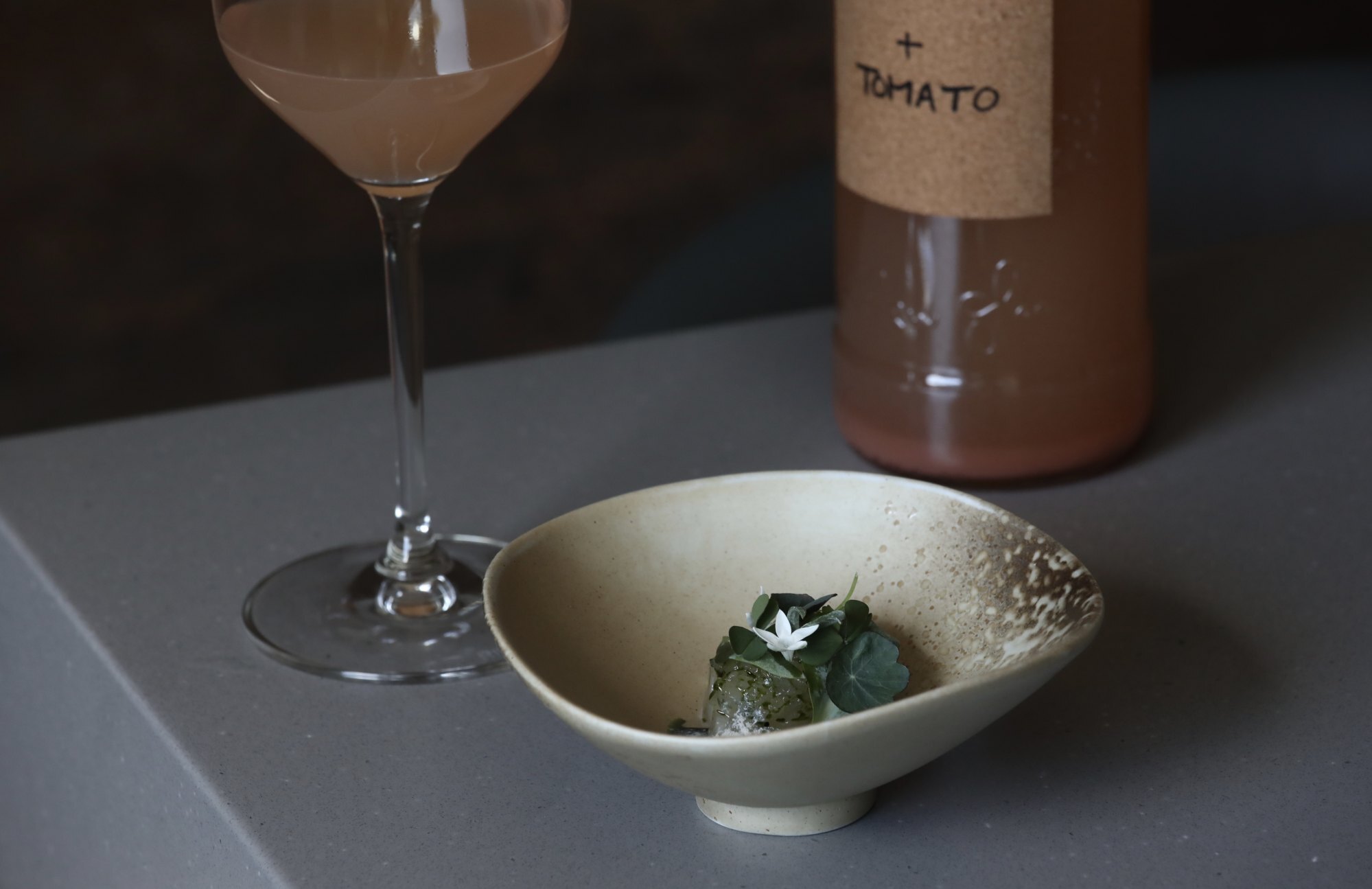
Gyokuro, a fine Japanese green tea that Gibba-Smith has infused with camomile and asparagus for a herbaceous and vegetal flavour, is paired with a dish of broccolini, clams and black garlic. Another pairing is barley tea and passion fruit, served with scallops, celtuce and pike perch.
One non-alcoholic concoction Gibba-Smith created has been greeted with raised eyebrows: a black tea called da hong pao mixed with sweet potato.
“When I was a child I used to eat raw sweet potato, and it has an earthy finish,” she says. Guests are sceptical at first, but many change their minds after tasting it.
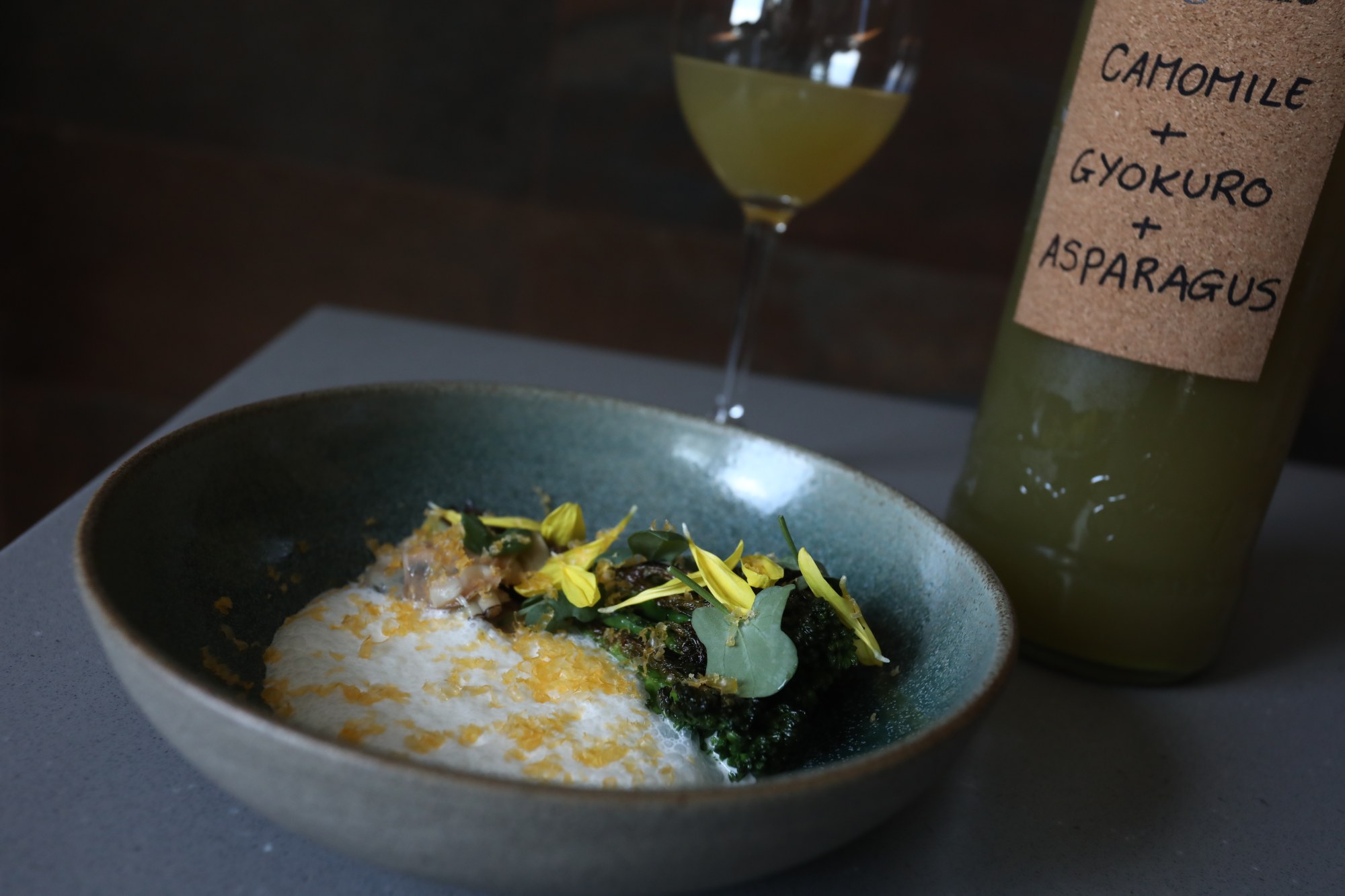
“They are really surprised they liked it. It’s hit and miss – some people think it’s too earthy, for most people they are surprised they like it. It’s the same with the tomato and guava pairing. It’s really refreshing and they weren’t expecting that.”
Glassbelly Tea Lab, 20/F, Henry House, 42 Yun Ping Road, Causeway Bay, tel: 5681 6268
Aulis, UG08 Sino Plaza, 255 Gloucester Road, Causeway Bay, tel: 2817 8383







